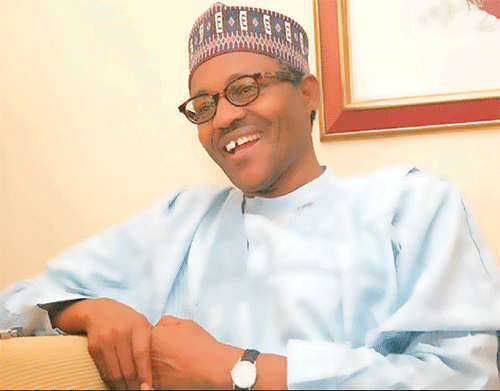“Don’t call me His Excellency. Don’t add Executive to my name. Just address me simply as Dr. Okezie Ikpeazu, governor of Abia State.”
Why did that simple declaration by the Abia State governor hit the world like a thunderbolt? Why did the world have to respond to it with such jubilant hysteria, in a manner of mass reflex? Why must it generate such a resounding applause? The world re-echoed in unison that a Daniel has come to judgment; that the right man is here. Instantly, Ikpeazu took a place in the heart of the world. What an instant reputation!
But, it was not deliberately and strategically deployed and we did not anticipate the applause and the global endorsement that greeted the simple declaration. We did not anticipate the instant fame! Such endorsements came in torrents, an avalanche of voices, all proclaiming that the sun has risen in Abia. Yet, the governor was just being himself and being what he has chosen to be – the simple, quintessential servant-leader. After all, what is in those appellations, ‘His Excellency’ and ‘Executive’? Dr. Ikpeazu says: throw them into the trash can and let’s do the job.
He would instruct me again: “Tell the people to remove all billboards and posters bearing my portrait. Tell contractors not to put my portrait on their signage, but to project their works. No praise-singing jingles. Let’s just do the work.”
Already, Ikpeazu has carved a niche and a world for himself by being the first to do a very simple thing. Call it innovation, yes, and what is he trying to do? He is orchestrating a revolution in Nigeria, as far as the person and the office of the governor is concerned, by demystifying the office and the person, and removing all the ceremonies and chivalries that disconnect the leader from the people. “I want to be the common governor for the common man,” he said.
Indeed, Ikpeazu emerged from the people and will remain with the people. He will soon go down in our lore as the first common and ordinary governor in the history of Nigeria. His revolution will remove all the mystique and simulation that make the governor appear like a transcendental being and remove all frivolities and trivialities that distract the leader from the major call, like chieftaincy titles, unnecessary awards and social recognition. He will remain available, approachable and accessible.
Now, back to the question: why did that simple declaration excite the heart of the world? First, it was a trail-blazer, a very novel positioning remarkably uncommon with political leaders in our clime. Second, it speaks about the man, his inner self, his level of self-mastery and mental predisposition. Third and greatly, it is a signpost pointing to where he is headed. The world is excited because they have not seen such show of humility and passion in power. From the time of the feudal lords, the empires and emperors, through the stages of world civilisation to modern democracy, the holder of power has always lived in an exclusively idealistic castle, with the mentality of the “chosen one”. Remember Shakespeare’s quote: “Mad world, mad kings, mad disposition”. Ikpeazu is pulling the castle down. He is changing the norm. He is discarding the tradition of the “chosen one” into the dustbin of history.
Indeed, Ikpeazu’s signpost is pointing to three things: work, service, performance. These are his main thrust and mission in government, and his reputation will not be a media creation, but will naturally relate to his capacity to achieve these values for the people of Abia. These values will also be the parameter for evaluating him at the end of the day. As a delegate of the people with a divine mandate, he cannot delegate his duties and responsibilities but will personally take charge and supervise all projects, direct all commissions and oversee all works, to ensure that things are done to his utmost satisfaction and for the general good of the people. And, he has taken off. Yes, he has!
Soon after his inauguration on May 29, he landed on the historical city of Aba to bring succour to the people. He immediately flagged off the reconstruction of seven roads that sum up to 18.9 kilometres. The roads include Umuocham, Umuola and Ehere roads. Others are Ukaegbu, Kamalu, Umule and Ukwu Mango on Faulks Road. “You will not compromise quality. You must do quality jobs and deliver on schedule or be blacklisted by the state government,” he told the contractors on site. Work has begun in earnest and the governor is daring the rain. He is more on the streets and on the roads, inspecting the progress of work than in the office. He is marching with the people, exchanging pleasantries as he moves. The doc has not changed, he will not change; he remains the man of the people.
The rebuilding of roads and the general infrastructural renewal of Aba remains a top priority for Dr. Ikpeazu’s administration. The vision is to bring Aba back to its old pride of place. To actualise the vision, Ikpeazu has to establish the Aba Urban Renewal office. The office will be a key driving force of the administration and the governor will show personal interest and commitment to the activities of the office, to ensure it performs to the utmost expectation. He has gone a step further to inaugurate the technical committee on the Abia State Integrated Infrastructural Development Project aimed at bringing donor agencies and development partners to assist in the development of the state.
He has stepped into the fabled land of Arochukwu to inspect the progress of work on the 34-kilometre Ndioji-Ndiokereke Arochukwu Road, which was stalled for some time now, and promised that it will be completed by December this year. He was happy that seven kilometres of the road has been asphalted, with an additional seven kilometres stone-based.
Yes, Dr. Ikpeazu is more on site than in the office and when you meet him, please, do not call him, “His Excellency”; call him “Doc”.
• Adindu is the Chief Press Secretary to the Governor.














